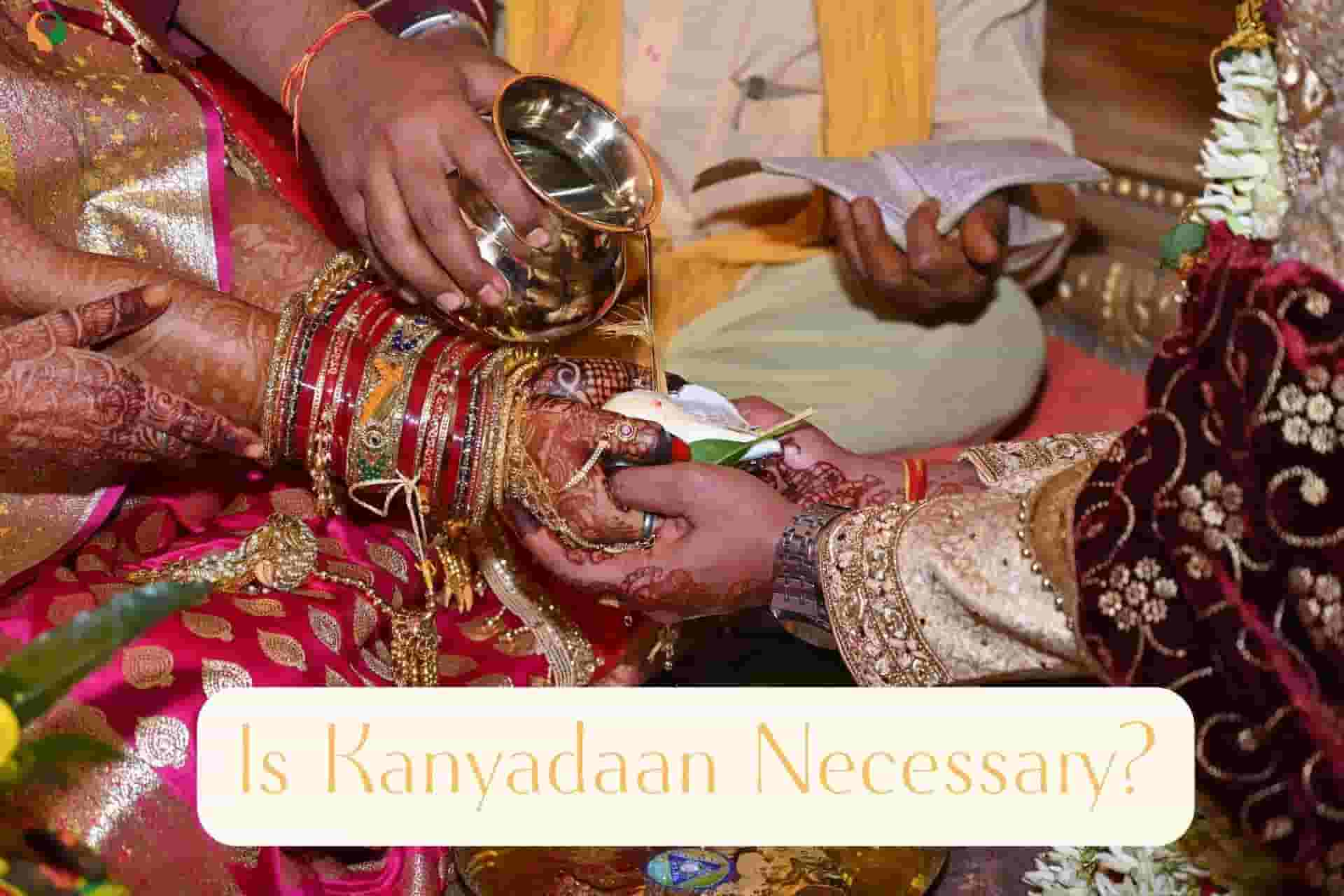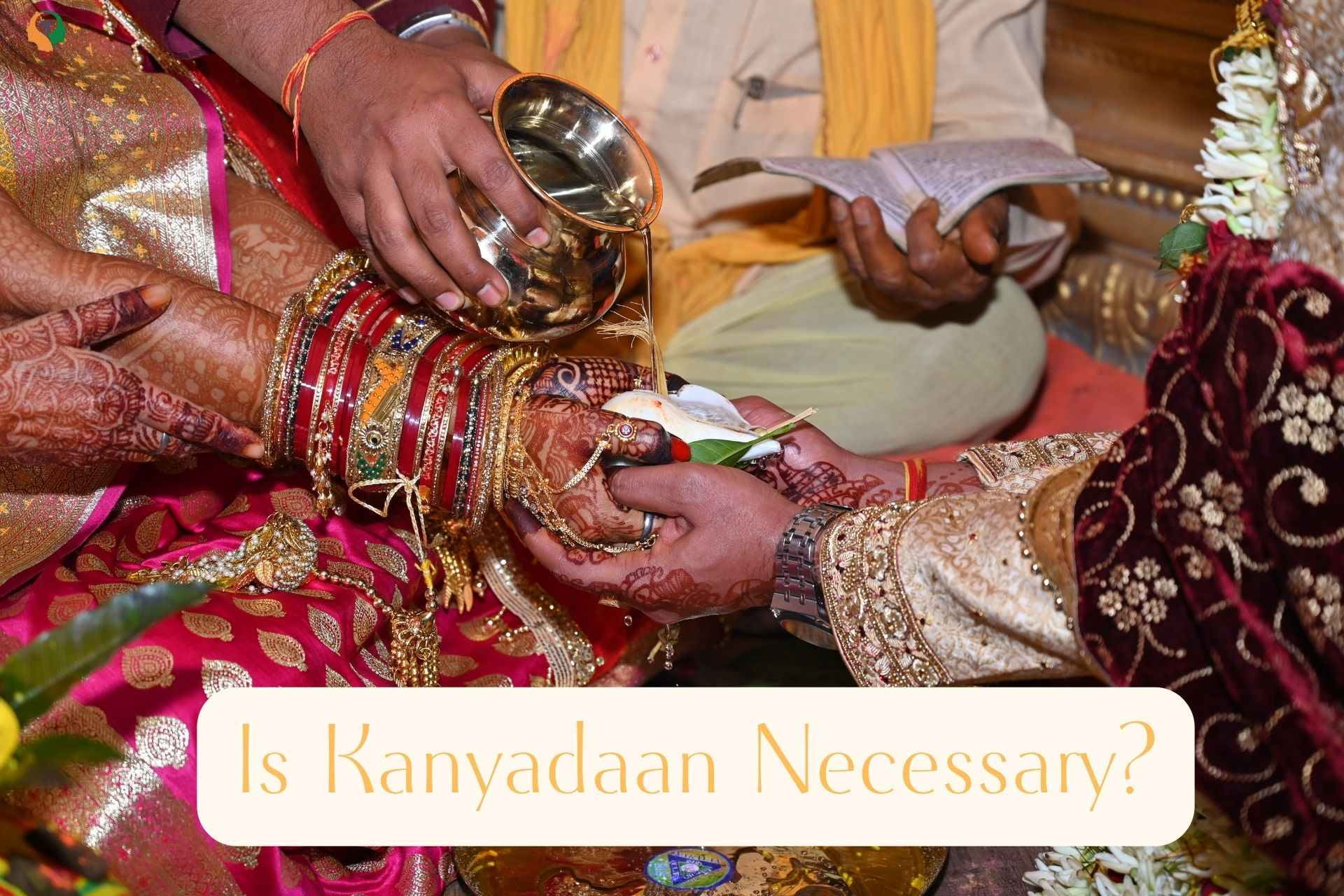Is Kanyadaan Necessary? New Marriage Law Says 'No'
Updated: 22-12-2025 at 3:30 PM
4k


The Allahabad High Court recently passed a judgment stating that the ritual of 'Kanyadaan' is not mandatory for solemnising Hindu marriages. Observing that the only need under the Hindu Marriage Act is to perform 'saptapadi*'* by taking seven steps around a sacred fire, the court affirmed that omitting other rituals would not invalidate nuptials.
For long, Kanyadaan has been touted as a core ritual where the father 'gifts' away his daughter as a 'dhan' (gift) to the groom. Terming this regressive and unconstitutional, the court has now ruled that marrying couples can formalise their union without adhering to this patriarchal tradition.
Read the article to understand the meaning of the term ‘Kanyadaan’ and real-life legal cases related to it.
What Is Kanyadaan?
'Kanya' refers to an unmarried girl or daughter, while 'daan' means donation. Kanyadaan denotes the giving away of a girl by her parents to the groom. It flows from the flawed societal notion that a girl is the property of her father. That gets transferred to her husband post-marriage.
The bride's father carries out the Kanyadaan by placing his daughter's hand in the groom's hand. He is supposed to be the father entrusting his daughter's responsibility to the groom. This gender-discriminatory practice established men as protectors and women as their dependents.
Read More: Marriage Grant Scheme
Case Study
A Hindu couple had appealed to the HC, alleging harassment by the woman's family for not performing 'Kanyadaan' during their wedding held five years ago. They sought protection from harassment. But the judge dismissed their plea because the exclusion of 'kanyadaan' itself invalidates the marriage under Hindu norms.
The couple then contested the judgment, making the HC review the matter again. This time, the HC asserted that kanyadaan is not prescribed under Section 7 of the Hindu Marriage Act.
The HC bench then clarified that, as per Hindu traditions, the only ritual establishing a wedding is 'saptapadi.’ Which is the couple taking seven steps together to signify the beginning of their wedlock journey. The court reiterated that the law only recognises this custom.
Read more: LIC Kanyadan Policy: Secure The Future Of Your Daughter!
What Was The Allahabad High Court Ruling And Reasoning?
In response to a petition, the Allahabad High Court bench, comprising Justice Dinesh Kumar Singh, ruled that the ritual of kanyadaan is neither compulsory nor an essential practice as per Section 7 of the Hindu Marriage Act, 1955.
The court outlined why perpetuating this custom violates constitutional principles:
-
Against the Right to Equality: Kanyadaan propagates the discriminatory belief that women are property that can be gifted, violating the bride's right to equality guaranteed under Article 14.
-
Against the Right to Individual Autonomy: Mandating Kanyadaan infringes on a woman's right to choice and her autonomy under Article 21.
-
Against Gender Justice Principles: Being rooted in patriarchy, Kanyadaan demeans the status of a woman as an equal partner in marriage.
Thus, any Hindu couple can choose to omit kanyadaan during their marriage ceremony as per their personal beliefs without affecting the marriage's legitimacy. Yet, its voluntary, symbolic performance does not merit censure, provided the woman consents without coercion.
Read More: Dr Ambedkar Scheme For Social Integration Through Inter-Caste Marriage
What Does This Judgement Reflect?
Passing this new judgment allows for a positive impact and flexibility in a marriage.
-
Boost Gender Equality: Enabling couples to refuse kanyadaan if regressive can promote egalitarian values in marriages.
2. Assert Women’s Autonomy: Women can better articulate their self-choice around rituals aligning with their belief systems.
-
Judicial Recognition of Reform: Ruling aligns the court's position with India's growing feminist consciousness, which resists practices commodifying women.
-
Spark Wider Social Reforms: Judgement can speed up reforms against other prevalent Hindu customs that are discriminatory and draconian towards women.
The judgement further explained that ‘kanyadaan’ is a ritual symbolising the "giving away" of the bride by her family. The omission of this practice, which is rooted more in social customs than religious texts, cannot be grounds for annulling an otherwise valid Hindu marriage.
Verdict And Conclusion
The Allahabad HC set a strong precedent on personal liberties by upholding the couple's marriage as sound despite lacking ‘kanyadaan’. The court reaffirmed that Indian couples have the right to carry out only those ceremonies aligned with their religious persuasions and personal beliefs. Imposing more traditions infringes on this constitutional right.
The ruling has won praise from many for striking down outdated practices that often put women down. But some conservative groups argue the judgement dilutes time-honoured Hindu marital customs. Nonetheless, the HC's observations have paved the way for modern Indian couples to solemnise marriages on their terms.
Stay updated with Jaagruk Bharat to get the latest information on government schemes and more, and reach out to us via our community page if you have any questions or want to share your thoughts.
Frequently Asked Questions
0
0
4k
0
0
4k Views
0
No comments available





Our Company
Home
About
T&C
Privacy Policy
Eula
Disclaimer Policy
Code of Ethics
Contact Us
Careers
Cancellation & Refund Policy
Categories
Women
Insurance
Finance
Tax
Travel
Transport & Infrastructure
Food
Entertainment
Communication
Government ID Cards
E-commerce
Traffic guidelines
Miscellaneous
Housing and Sanitation
Sports
Startup
Environment and Safety
Education
Agriculture
Social cause
Employment
Disclaimer: Jaagruk Bharat is a private organization offering support for documentation and government scheme access. We are not affiliated with any government body. Official services are available on respective government portals. Our goal is to make processes easier and more accessible for citizens.
All Copyrights are reserved by Jaagruk Bharat